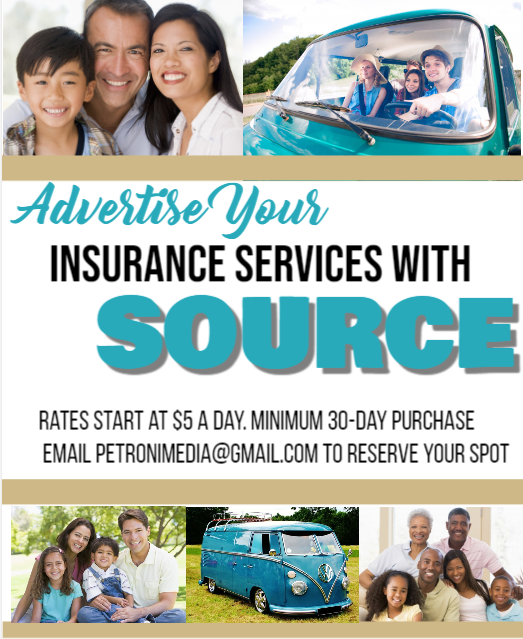[broadstreet zone=”59948″]
BOSTON – The National Weather Service is forecasting a possible 5-6 inches of rain for MetroWest, including Framingham with Hurricane/Tropical Storm Henri.
Gov. Charlie Baker has activated the National Guard for this storm which will bring heavy rain and high winds to most of Massachusetts, and a storm surge to Cape Cod and the coastal communities.
Cape Cod could see Hurricane force winds of more than 70 miles per hour.
[broadstreet zone=”59946″]
MetroWest is likely to see wind gusts of more than 35 miles per hour, according to the latest forecast from the national Weather Service out of Boston/Norton.
Henri currently is just a Tropical Storm but if it hits New England as a hurricane, it will be the first hurricane in 30 years – last one was Hurricane Bob.
A hurricane watch is in effect for most of Cape Cod.
A hurricane watch means that hurricane conditions are possible within the watch area.
The first tropical storm winds from Henri could reach the Massachusetts on Saturday. The worst impact is expected on Sunday and going into Monday.
[broadstreet zone=”59984″]
The following is from the Massachusetts Emergency Management Agency in Framingham:
What to do before a Hurricane Strikes
- Be informed by receiving alerts, warnings, and public safety information before, during, and after emergencies.
- Know Your Zone. Learn if you live in a hurricane evacuation zone.
- Find out whether your property is in a flood-prone or high-risk area. Explore the Federal Emergency Management Agency’s (FEMA) flood maps.
- Create and review your family emergency plan.
- If you live or work in a flood zone, hurricane evacuation zone, or an area that is prone to flooding, you should be prepared to evacuate.
- If you receive medical treatment or home health care services, work with your medical provider to determine how to maintain care and service if you are unable to leave your home or have to evacuate during.
- Assemble an emergency kit.
- Follow instructions from public safety officials.
- Prepare for possible power outages.
- Ensure your smoke and carbon monoxide detectors are working and have fresh batteries.
- Consider purchasing a generator to provide power during an outage. Follow the manufacturer’s instructions and learn how to use it safely before an outage.
- If you have life-support devices or other medical equipment or supplies which depend on electricity, notify your utility and work with your medical provider to prepare for power outages.
- Make a record of your personal property by taking photos or videos of your belongings. Store these records in a safe place.
- Prepare your home.
- Consider attaching temporary plywood covers to protect windows and sliding doors.
- If you live in a coastal community, review the Homeowner’s Handbook to Prepare for Coastal Hazards.
- Flood losses are not typically covered under renter and homeowner’s insurance policies. Consider purchasing flood insurance through the National Flood Insurance Program (NFIP).
[broadstreet zone=”59982″]
Additional considerations during COVID-19 pandemic
During COVID-19, you should add additional items to your emergency kit which you might need to use either at home or if you need to evacuate. These items will help keep you and your family safe during an emergency that occurs during the COVID-19 pandemic.
- Include face coverings and/or masks to prevent the spread of germs. For details, see: DPH mask guidance.
- Include disinfectants, hand sanitizer and other cleaning supplies that you may need in an emergency.
During COVID-19, your family emergency plan should include what you might do differently given the public health guidance.
- Your plan to evacuate should include where you might evacuate to (such as a relatives’ home, hotel, etc.) given your family’s circumstances.
- If you do have to evacuate:
- Consider going to a hotel or other location where you may have less contact with others
- Bring key emergency supplies including face coverings, disinfectants and hand sanitizer
- Wear face coverings in public places
- Maintain social distancing six feet apart with those outside your household
[broadstreet zone=”59983″]
What to do when a Hurricane or Topical Storm Is Approaching
- Listen to a National Oceanic and Atmospheric Administration (NOAA) Weather Radio or to a local news station for the latest information.
- Review your family emergency plan.
- Prepare for power outages by charging cell phones and electronics and setting your refrigerator and freezer to their coldest settings. If you use electricity to get well water, fill your bathtub with water to use for flushing toilets.
- Keep your car’s gas tank full. Pumps at gas stations may not work during a power outage.
- Prepare your home.
- Secure or bring in outdoor objects (patio furniture, children’s toys, trash cans, etc.) that could be swept away or damaged during strong winds or flooding.
- Clear clogged rain gutters to allow water to flow away from your home.
- If damaging winds are expected, cover all of your windows. If you don’t have storm shutters, board up windows with 5/8” exterior-grade or marine plywood.
- Go Tapeless! Taping windows wastes preparation time, does not stop windows from breaking in a hurricane, and does not make cleanup easier. In fact, taping windows may create larger shards of glass that can cause serious injuries.
- Turn off propane tanks if you are not using them.
- Prepare for flooding by elevating items in your basement, checking your sump pump, unplugging sensitive electronic equipment, clearing nearby catch basins, and parking vehicles in areas not prone to flooding.
- If instructed, turn off your gas and electricity at the main switch or valve.
- If you have a boat, remove it from the water. If you cannot, prepare your boat for the storm to reduce damage.

What to do during a Hurricane
- Avoid driving or going outdoors during a storm. Flooding and damaging winds can make traveling dangerous.
- If you must be out in the storm:
- Do not walk through flowing water. Six inches of swiftly moving water can knock you off of your feet.
- Remember the phrase “Turn Around, Don’t Drown!” Don’t drive through flooded roads. Cars can be swept away in just two feet of moving water. If your vehicle is trapped in rapidly moving water, stay in the vehicle. If the water is rising inside the vehicle, seek refuge on the roof.
- Do not drive around road barriers.
- Continue to monitor media for emergency information.
- Follow instructions from public safety officials.
- If advised to evacuate, do so immediately. Take only essential items, and bring your pets if possible.
- If told to shelter in place:
- Stay indoors and away from windows.
- Listen to local television or radio for updates.
- Conditions may change quickly; be prepared to evacuate to a shelter or neighbor’s home if necessary.
[broadstreet zone=”58892″]
What to do after a Hurricane has passed
- Continue to monitor the media for emergency information.
- Follow instructions from public safety officials.
- Call 9-1-1 to report emergencies, including downed power lines and gas leaks.
- Call 2-1-1 to obtain shelter locations and other disaster information.
- Stay away from downed utility wires. Always assume a downed power line is live.
- Remember the phrase “Turn Around, Don’t Drown!” Don’t drive through flooded roads. Cars can be swept away in just two feet of moving water.
- Stay out of damaged buildings and away from affected areas and or roads until authorities deem them safe.
- If you have evacuated, return home only when authorities say it is safe to do so.
- Listen to news reports to learn if your water supply is safe to drink. Until local authorities proclaim your water supply safe, boil water for at least one minute before drinking or using it for food preparation.
- Check your home for damage:
- Never touch electrical equipment while you are wet or standing in water. Consider hiring a qualified electrician to assess damage to electrical systems.
- Have wells checked for contamination from bacteria and chemicals before using.
- Have damaged septic tanks or leaching systems repaired as soon as possible to reduce potential health hazards.
- If you believe there is a gas leak, go outdoors immediately, and do not turn electrical switches or appliances on or off. If you turned off your gas, a licensed professional is required to turn it back on.
- If your home or property is damaged, take photos or videos to document damage, and contact your insurance company.
- If your power is out, follow our power outage safety tips.
- Report power outages to your utility company.
- Use generators and grills outside because their fumes contain carbon monoxide. Make sure your carbon monoxide detectors are working as it is a silent, odorless, killer. See more Generator Safety Tips.
- If a traffic light is out, treat the intersection as a four-way stop.
- If phone lines are down, use social media or texting to let others know you are OK.
- Look before you step. After a hurricane or flood, the ground and floors can be covered with debris, including broken bottles and nails.
- Avoid entering moving or standing floodwaters. Floodwater and mud may be contaminated by oil, gasoline, or raw sewage.
- Clean and disinfect anything that got wet, and take steps to prevent and detect mold. Consider using professional cleaning and repair services. See more tips to recover from flooding.
- Throw away food (including canned items), that has come into contact with floodwaters, was exposed to temperatures above 40 °F for more than two hours, or has an unusual odor, color, or texture. When in doubt, throw it out!
- Be a good neighbor. Check on family, friends, and neighbors, especially the elderly, those who live alone, those with medical conditions and those who may need additional assistance.
[broadstreet zone=”58610″]
What to do before a Hurricane Strikes
- Be informed by receiving alerts, warnings, and public safety information before, during, and after emergencies.
- Know Your Zone. Learn if you live in a hurricane evacuation zone.
- Find out whether your property is in a flood-prone or high-risk area. Explore the Federal Emergency Management Agency’s (FEMA) flood maps.
- Create and review your family emergency plan.
- If you live or work in a flood zone, hurricane evacuation zone, or an area that is prone to flooding, you should be prepared to evacuate.
- If you receive medical treatment or home health care services, work with your medical provider to determine how to maintain care and service if you are unable to leave your home or have to evacuate during.
- Assemble an emergency kit.
- Follow instructions from public safety officials.
- Prepare for possible power outages.
- Ensure your smoke and carbon monoxide detectors are working and have fresh batteries.
- Consider purchasing a generator to provide power during an outage. Follow the manufacturer’s instructions and learn how to use it safely before an outage.
- If you have life-support devices or other medical equipment or supplies which depend on electricity, notify your utility and work with your medical provider to prepare for power outages.
- Make a record of your personal property by taking photos or videos of your belongings. Store these records in a safe place.
- Prepare your home.
- Consider attaching temporary plywood covers to protect windows and sliding doors.
- If you live in a coastal community, review the Homeowner’s Handbook to Prepare for Coastal Hazards.
- Flood losses are not typically covered under renter and homeowner’s insurance policies. Consider purchasing flood insurance through the National Flood Insurance Program (NFIP).

Additional considerations during COVID-19 pandemic
During COVID-19, you should add additional items to your emergency kit which you might need to use either at home or if you need to evacuate. These items will help keep you and your family safe during an emergency that occurs during the COVID-19 pandemic.
- Include face coverings and/or masks to prevent the spread of germs. For details, see: DPH mask guidance.
- Include disinfectants, hand sanitizer and other cleaning supplies that you may need in an emergency.
During COVID-19, your family emergency plan should include what you might do differently given the public health guidance.
- Your plan to evacuate should include where you might evacuate to (such as a relatives’ home, hotel, etc.) given your family’s circumstances.
- If you do have to evacuate:
- Consider going to a hotel or other location where you may have less contact with others
- Bring key emergency supplies including face coverings, disinfectants and hand sanitizer
- Wear face coverings in public places
- Maintain social distancing six feet apart with those outside your household
[broadstreet zone=”61072″]
What to do when a Hurricane or Topical Storm Is Approaching
- Listen to a National Oceanic and Atmospheric Administration (NOAA) Weather Radio or to a local news station for the latest information.
- Review your family emergency plan.
- Prepare for power outages by charging cell phones and electronics and setting your refrigerator and freezer to their coldest settings. If you use electricity to get well water, fill your bathtub with water to use for flushing toilets.
- Keep your car’s gas tank full. Pumps at gas stations may not work during a power outage.
- Prepare your home.
- Secure or bring in outdoor objects (patio furniture, children’s toys, trash cans, etc.) that could be swept away or damaged during strong winds or flooding.
- Clear clogged rain gutters to allow water to flow away from your home.
- If damaging winds are expected, cover all of your windows. If you don’t have storm shutters, board up windows with 5/8” exterior-grade or marine plywood.
- Go Tapeless! Taping windows wastes preparation time, does not stop windows from breaking in a hurricane, and does not make cleanup easier. In fact, taping windows may create larger shards of glass that can cause serious injuries.
- Turn off propane tanks if you are not using them.
- Prepare for flooding by elevating items in your basement, checking your sump pump, unplugging sensitive electronic equipment, clearing nearby catch basins, and parking vehicles in areas not prone to flooding.
- If instructed, turn off your gas and electricity at the main switch or valve.
- If you have a boat, remove it from the water. If you cannot, prepare your boat for the storm to reduce damage.

What to do during a Hurricane
- Avoid driving or going outdoors during a storm. Flooding and damaging winds can make traveling dangerous.
- If you must be out in the storm:
- Do not walk through flowing water. Six inches of swiftly moving water can knock you off of your feet.
- Remember the phrase “Turn Around, Don’t Drown!” Don’t drive through flooded roads. Cars can be swept away in just two feet of moving water. If your vehicle is trapped in rapidly moving water, stay in the vehicle. If the water is rising inside the vehicle, seek refuge on the roof.
- Do not drive around road barriers.
- Continue to monitor media for emergency information.
- Follow instructions from public safety officials.
- If advised to evacuate, do so immediately. Take only essential items, and bring your pets if possible.
- If told to shelter in place:
- Stay indoors and away from windows.
- Listen to local television or radio for updates.
- Conditions may change quickly; be prepared to evacuate to a shelter or neighbor’s home if necessary.
[broadstreet zone=”53820″]
What to do after a Hurricane has passed
- Continue to monitor the media for emergency information.
- Follow instructions from public safety officials.
- Call 9-1-1 to report emergencies, including downed power lines and gas leaks.
- Call 2-1-1 to obtain shelter locations and other disaster information.
- Stay away from downed utility wires. Always assume a downed power line is live.
- Remember the phrase “Turn Around, Don’t Drown!” Don’t drive through flooded roads. Cars can be swept away in just two feet of moving water.
- Stay out of damaged buildings and away from affected areas and or roads until authorities deem them safe.
- If you have evacuated, return home only when authorities say it is safe to do so.
- Listen to news reports to learn if your water supply is safe to drink. Until local authorities proclaim your water supply safe, boil water for at least one minute before drinking or using it for food preparation.
- Check your home for damage:
- Never touch electrical equipment while you are wet or standing in water. Consider hiring a qualified electrician to assess damage to electrical systems.
- Have wells checked for contamination from bacteria and chemicals before using.
- Have damaged septic tanks or leaching systems repaired as soon as possible to reduce potential health hazards.
- If you believe there is a gas leak, go outdoors immediately, and do not turn electrical switches or appliances on or off. If you turned off your gas, a licensed professional is required to turn it back on.
- If your home or property is damaged, take photos or videos to document damage, and contact your insurance company.
- If your power is out, follow our power outage safety tips.
- Report power outages to your utility company.
- Use generators and grills outside because their fumes contain carbon monoxide. Make sure your carbon monoxide detectors are working as it is a silent, odorless, killer. See more Generator Safety Tips.
- If a traffic light is out, treat the intersection as a four-way stop.
- If phone lines are down, use social media or texting to let others know you are OK.
- Look before you step. After a hurricane or flood, the ground and floors can be covered with debris, including broken bottles and nails.
- Avoid entering moving or standing floodwaters. Floodwater and mud may be contaminated by oil, gasoline, or raw sewage.
- Clean and disinfect anything that got wet, and take steps to prevent and detect mold. Consider using professional cleaning and repair services. See more tips to recover from flooding.
- Throw away food (including canned items), that has come into contact with floodwaters, was exposed to temperatures above 40 °F for more than two hours, or has an unusual odor, color, or texture. When in doubt, throw it out!
- Be a good neighbor. Check on family, friends, and neighbors, especially the elderly, those who live alone, those with medical conditions and those who may need additional assistance.


